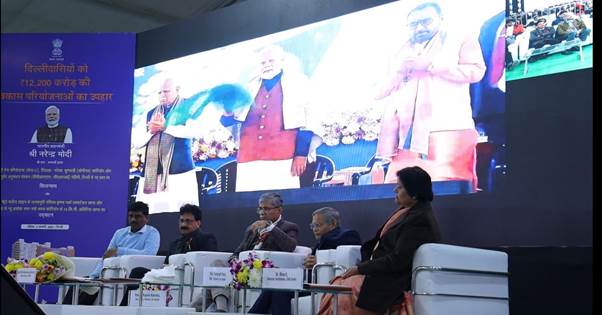New Delhi: Prime Minister Narendra Modi virtually laid the foundation stone for the Central Ayurveda Research Institute (CARI) in Rohini, marking a significant step in advancing traditional medicine and healthcare in India. Speaking at the event, the Prime Minister referred to the initiative as “Ayurveda’s next big leap” and emphasized the government’s commitment to making healthcare accessible for all, especially the underprivileged.
PM Modi highlighted the global growth of Indian traditional medicine systems like Ayurveda and AYUSH over the past decade, now recognized in over 100 countries. He also mentioned that India hosts the first World Health Organization (WHO) center for traditional medicine and recently inaugurated the second phase of the All India Institute of Ayurveda.
The Prime Minister expressed confidence in India’s potential to become a global health and wellness hub, introducing the “Heal in India” initiative to promote medical tourism for AYUSH treatments. He noted that the new AYUSH visa facility has already benefited hundreds of foreign national.
The upcoming CARI campus, spanning 2.92 acres, represents a Rs187 crore investment and will include a 100-bed research hospital to integrate Ayurvedic and modern healthcare practices. The institute will focus on specialties such as geriatrics, pediatrics, ENT, arthritis, preventive cardiology, and eye care, combining traditional therapies like Panchakarma, Kshara Sutra, and Jalukavacharana with advanced medical technologies.
The Central Ayurveda Research Institute was established in 1979 and has been a leader in clinical research, focusing on non-communicable diseases and preventive cardiology. For decades, it operated from rented premises in Punjabi Bagh, Delhi. The new facility will provide the institute with a permanent, modern campus to expand its research and healthcare services.
“This futuristic building will set a benchmark for Ayurvedic research and provide high-quality services to society,” said Vaidya Rajesh Kotecha, Secretary of the Ministry of AYUSH.
The institute will also offer training programs, including a Panchakarma Technician Training Course, empowering youth with skills to contribute to the growth of the Ayurvedic sector. With NABH and NABL accreditations, the institute is committed to maintaining the highest standards in healthcare and research.
Set to be completed within 30 months, the new campus is expected to revolutionize Ayurvedic research and patient care. It will house clinical labs, physiotherapy units, and a library, positioning India as a leader in integrating traditional and modern healthcare.
“This facility is a gift to the people of Delhi and a significant step towards realizing India’s vision of becoming the world’s health and wellness capital,” said Shri Prataprao Jadhav, Union Minister of State for AYUSH.
Source: PIB






